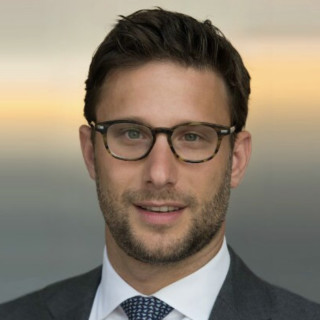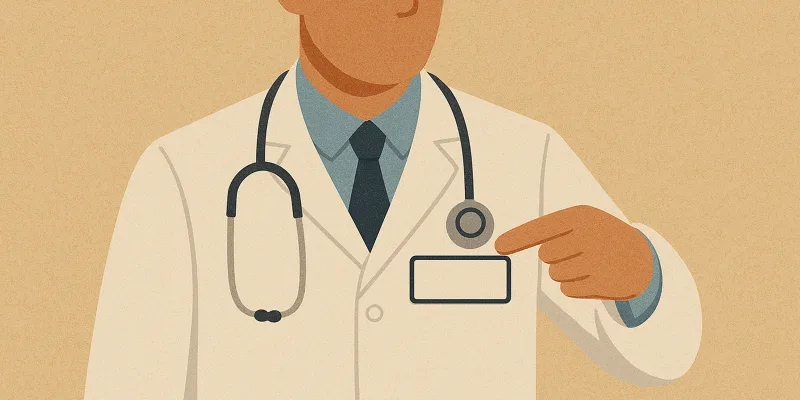So, you’re finishing residency this year. Congrats! Sort of. Chances are, you are $200K or more in debt. You’ve survived a pandemic, and probably have a few battle scars to show for it. And now you are starting to look for your first real job (as if 80-hour weeks and barely making minimum wage as a resident doesn’t qualify as a “real” job) in the most turbulent and unpredictable physician job market in generations.
With so much uncertainty — hospitals and clinics furloughing employees, elective surgeries cancelled, an economy on the brink of recession — how can you plan long-term career moves when everything around you is changing by the minute? You anticipate. You adapt. To quote the hockey great, Wayne Gretzky, “Don’t skate to where the puck has been, skate to where the puck is going to be.”
For those of you looking for your first job, there is no better time than the present to position yourself to succeed in a rapidly evolving health care landscape. If you can anticipate how health care is transforming, you can see past the chaos and chart your own career path.
So, what does the future hold? Looking into our crystal ball, here are seven factors to consider as you set sail to chart new waters:
1) Think outside the office: Of course, most patients will continue receiving care within the four walls of a clinic. Nothing can replace the diagnostic and therapeutic importance of face-to-face interactions with our patients. However, increasingly, health care is moving out of the office. Young tech-savvy patients expect care to be just as convenient as ordering the newest gadget online. At the same time, many of the highest risk patients are the ones who aren’t coming into the office, either because they are too infirm, unable, or simply disengaged. To stay relevant to these patients, and to prepare yourself for the “health care system of the future,” look for a medical practice that is just as committed to caring for patients outside the four walls of the medical office as inside.
2) Prepare for the “silver tsunami”: Over the next decade, the number of Americans over the age of 65 is expected to double. Among the painful lessons of the pandemic was just how vulnerable this population is. In the coming years, those over 65 will need dedicated physicians who can address the special care needs of an aging population, including geriatricians, behavioral health specialists, and a focus on end of life/palliative care. All physicians will increasingly be called upon to care for older Americans, and those physicians who embrace that challenge will not only be highly sought after, but will find a deep, meaningful calling.
3) Think outside the hospital: COVID-19 has exposed deep and unsustainable inefficiencies in hospital compensation. To cover huge infrastructure overhead, health systems went on a buying spree over the last decade, acquiring physician practices, especially around highly lucrative specialties like cardiology and oncology. In fact, starting in 2018, more physicians were employed by hospital systems than private physician practices. Now, with deep losses due to postponed elective surgeries, many hospitals systems are reporting record shortfalls. As more care is delivered in ambulatory settings, the future increasingly looks like it will be outside of the four walls of the hospital. Candidates who are prepared for care models of the future should hitch their wagons to practices that embrace community-based, outpatient care.
4) Get on the value side of the equation: It is estimated that almost $1 trillion of health care spending in the U.S. is considered “waste” (e.g., duplicative testing, avoidable admissions, medical mistakes, low value testing and procedures, etc.). Considering that 18% of gross domestic product in the U.S. goes to health care, one doesn’t need to be an economist to know that this wasteful model of care is unsustainable. Increasingly, the government, insurance companies, employers, and patients are demanding higher value for their health care dollars. As our country transitions from a broken fee-for-service model to a model that focuses on value, physicians who can deliver the highest quality, most efficient care will be positioned to win. Success is not measured by how many patients you see in a day. Rather, it’s about your patient outcomes, and efficiently using resources to enhance those outcomes. Look closely for practices that don’t just pay lip service to catchphrases like “value-based care“ or “population health,” but that fully embrace the future by taking on meaningful financial risk for their patients’ care. And equally important, find a practice that rewards physicians for the service they provide patients — a practice where 20% of a physician’s compensation is tied to the value and quality of care provided.
5) Patient relationships cannot be replaced: COVID-19 has also accelerated the pace of disruption in health care. Retail stores are launching walk-in clinics and setting up kiosks to connect remotely with providers. Tech companies are advertising smartwatches that can track O2 saturation and heart rhythm. No doubt, the amount of money and technology being thrown at health care will only increase, but nothing can replace the importance of the doctor-patient relationship — it is our greatest currency as healers. In a health care world that changes day-to-day, find a practice where you can develop and sustain long-term relationships with patients and where your patients are at the center of everything you do.
6) Medicine is a team sport: The days of the physician as a solitary genius are quickly receding in the rearview mirror (apologies to fans of the TV show “House”). As medicine becomes more and more complex, quality patient care depends on teams that work well together. Seek out practices that have a culture of true collaboration, where physicians work hand-in-hand with colleagues across disciplines, including pharmacists, social workers, health coaches, navigators, behavioral health specialists, RNs, NPs, and PAs.
7) Follow your passions: After months stuck in a COVID-19 bubble (and years of training), perhaps this strange wrinkle in the space-time continuum will give you a chance to hit the pause button and reflect on what truly matters to you. You’ve spent countless years studying, training, and caring for sick patients during overnight shifts on hospital wards. At the end of the day, what will sustain you through the ups and downs of a medical career is the meaning you find in caring for others. Follow your passions. Make a difference in the world.
Dr. Benjamin Kornitzer is the Chief Medical Officer at agilon health. He is board-certified in internal medicine and his clinical practice focuses on primary care for high-risk, home-bound older adults.
Agilon Health is a client of Curative, a health care staffing firm recently acquired by Doximity.
Illustration by Yi-Min Chun







